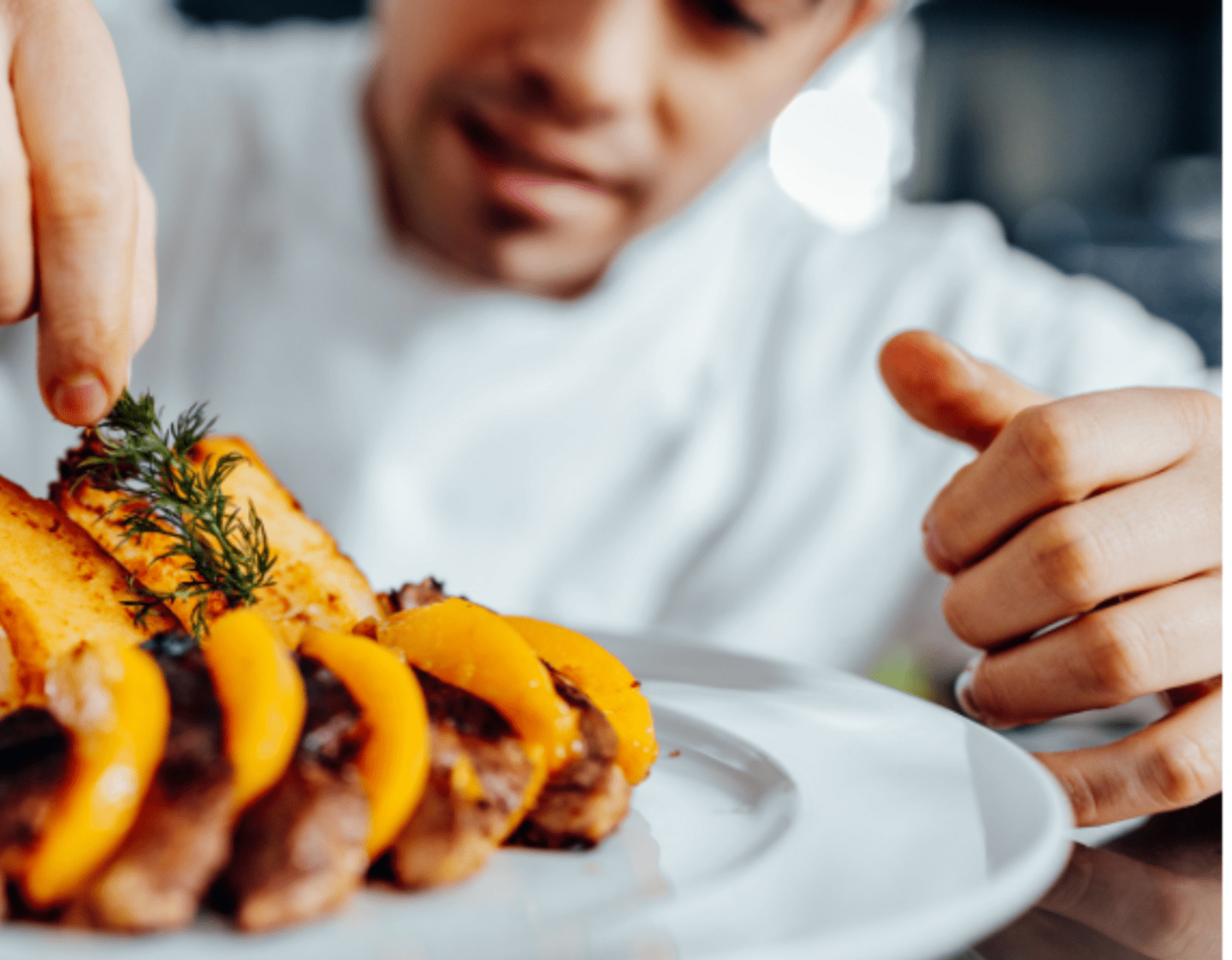.png)
Working as a head chef in the UK can be an exciting and challenging career path, with many opportunities for growth and development. Below are some key aspects to consider:
Education and Training:
To become a head chef, it is important to have a strong foundation in culinary arts. This can be achieved through a variety of routes, including culinary schools, apprenticeships, and on-the-job training. Many head chefs in the UK have completed vocational courses or a degree in culinary arts or hospitality management.
Experience:
Experience is a crucial component of becoming a head chef. Many head chefs in the UK have worked their way up through the ranks, starting as a line cook or apprentice and gradually building up their skills and expertise. Some head chefs also gain experience by working in different types of kitchens, such as fine dining restaurants, hotels, and catering companies.
Skills:
To be a successful head chef, it is important to have a wide range of culinary skills, including menu planning, food preparation, cooking techniques, food safety, and kitchen management. In addition, head chefs must have strong leadership, communication, and interpersonal skills, as they are responsible for managing a team of chefs and kitchen staff.
Responsibilities:
As the head chef, your responsibilities will include creating menus, ordering ingredients and supplies, managing inventory, overseeing food preparation and cooking, ensuring food safety and quality standards are met, managing the kitchen staff, and ensuring that the kitchen operates efficiently and effectively.
Career Opportunities:
There are many career opportunities for head chefs in the UK, including working in restaurants, hotels, catering companies, and private households. Some head chefs also go on to open their own restaurants or catering businesses.
Salary:
Head chefs in the UK can earn a wide range of salaries, depending on factors such as their level of experience, the type of establishment they work in, and their geographic location. According to payscale.com, the average salary for a head chef in the UK is around £29,000 to £35,000 per year, but salaries can range from £18,000 to over £50,000 per year.
Overall, being a head chef in the UK can be a rewarding and fulfilling career, with many opportunities for growth and development.
What role does the head chef usually play in the kitchen?
The head chef is typically the person in charge of the kitchen and is responsible for overseeing all aspects of the culinary operation. The role of the head chef can vary depending on the type of kitchen they work in, but in general, their responsibilities include:
Menu planning and development: The head chef is responsible for creating menus and recipes that are in line with the restaurant's concept and vision. They must consider factors such as seasonality, dietary restrictions, and food cost when developing menus.
Food preparation and cooking: The head chef is responsible for overseeing the preparation and cooking of all dishes in the kitchen. They must ensure that all food is prepared to the highest standards of quality and consistency.
Kitchen management: The head chef is responsible for managing the kitchen staff, including hiring and training new employees, scheduling shifts, and ensuring that all kitchen procedures are followed.
Ordering and inventory management: The head chef is responsible for ordering ingredients and supplies, managing inventory, and ensuring that the kitchen has all the necessary items to operate smoothly.
Food safety and sanitation: The head chef must ensure that all food safety and sanitation procedures are followed in the kitchen to prevent foodborne illness.
Quality control: The head chef is responsible for ensuring that all dishes meet the restaurant's quality standards and are presented in an appealing manner.
Overall, the head chef plays a crucial role in the kitchen and is responsible for creating a positive and efficient work environment, as well as producing high-quality dishes that meet the expectations of customers.
The head chef manages the kitchen by overseeing all aspects of the culinary operation and ensuring that everything runs smoothly. Here are some ways in which a head chef manages the kitchen:
Leading by example: The head chef sets the tone for the kitchen and must lead by example. They should be hardworking, organized, and efficient in their work and demonstrate professionalism and positive behaviour towards their team members.
Communicating effectively: The head chef must communicate effectively with the kitchen staff to ensure that everyone is on the same page. They should provide clear instructions, give feedback, and foster open communication to ensure that everyone is aware of their responsibilities.
Creating a positive work environment: The head chef should create a positive and supportive work environment where employees feel valued and motivated to do their best. This can be achieved through team-building activities, recognition programs, and providing opportunities for growth and development.
Managing inventory and ordering supplies: The head chef must manage inventory and order supplies to ensure that the kitchen has all the necessary ingredients and equipment to operate efficiently.
Monitoring food quality and consistency: The head chef must ensure that all dishes meet the restaurant's quality standards and are consistent in taste, texture, and presentation. They should taste and inspect dishes regularly and provide feedback to the kitchen staff to ensure that the food meets the restaurant's standards.
Ensuring food safety and sanitation: The head chef must ensure that all food safety and sanitation procedures are followed in the kitchen to prevent foodborne illness. They should train employees on proper food handling and hygiene practices and monitor the kitchen to ensure that all areas are clean and organized.
Overall, the head chef plays a crucial role in managing the kitchen and ensuring that everything runs smoothly. By providing effective leadership, clear communication, and maintaining a positive work environment, the head chef can create a successful and efficient culinary operation.
How do I become a head chef? What experience do I need?
To become a head chef, you typically need a combination of education, training, and experience. Here are the usual steps you can take to become a head chef:
Get an education in culinary arts: A formal education in culinary arts can provide you with a strong foundation in cooking techniques, food safety, and kitchen management. You can pursue a degree or diploma in culinary arts from a vocational school or college.
Gain work experience in the kitchen: To become a head chef, you need experience working in a professional kitchen. You can start as a line cook, prep cook, or kitchen assistant and work your way up through the ranks.
Pursue additional training: Continuing education and training can help you develop new skills and stay up to date with industry trends. You can attend culinary workshops, take advanced cooking classes, or pursue certification in a particular area of expertise, such as baking or pastry.
Develop leadership and management skills: As a head chef, you'll be responsible for managing a team of cooks and kitchen staff. Developing strong leadership and management skills, such as communication, problem-solving, and decision-making, can help you excel in this role.
Build a professional network: Building relationships with industry professionals can help you learn about job opportunities and gain valuable insights into the industry. You can join culinary associations, attend industry events, and network with chefs and other professionals in the field.
Head Chefs typically have several years of experience working in a professional kitchen. They may have worked as a line cook, sous chef, or executive chef before being promoted to head chef. Many head chefs also have experience working in different types of kitchens, such as fine dining restaurants, hotels, and catering companies.


